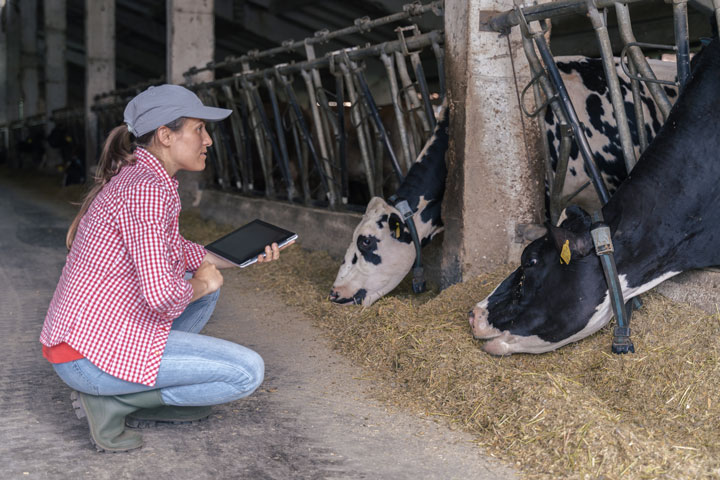
Program overview
Students in the Master of Public Health emphasis in Veterinary Public Health receive training in zoonotic disease prevention, food safety and other emerging issues in animal and human health. This is an ideal complement for an undergraduate degree in animal science, biology or related fields.
Want to know more about veterinary public health emphasis? Check out these videos.
Apply today
Review application requirements and apply through the MU Graduate School.
Frequently asked questions
What is public health?
Public health is the science of protecting and improving the health of people and their communities – including animals and the environment. Public health professionals promote healthy lifestyles, research disease and injury prevention, and detect, prevent and respond to infectious diseases. Public health solutions are aimed at protecting the health of entire populations versus only individual patients. Via viewing patterns of population health, public health work also addresses health disparities and promotes healthcare equity, quality and accessibility. Public health professionals try to prevent problems from happening or recurring through implementing educational programs, recommending policies, administering services and conducting research. The MU MPH program includes two different emphasis area tracks, health promotion and policy and veterinary public health.
What is veterinary public health?
Veterinarians are involved in nearly all aspects of public health as they work to protect animals, people, and the environment. For this reason, the notion of “One Health” –an approach that recognizes that the health of people is closely connected to the health of animals and our shared environment – is a guiding health initiative. For instance, many animal diseases also affect families and communities. Thus, veterinarians implement public health strategies when they undertake immunization, parasite control, and education initiatives with pets and pet owners. Veterinarians also track, prevent, and treat zoonotic diseases like avian flu or even bioterror threats like anthrax. Veterinarians protect the food supply by maintaining the health and welfare of farm animals, and oversee meatpacking plants. Diseases caused by salmonella, listeria, and other bacteria can be transferred quickly between people and animals by food. Veterinarians are well positioned to identify and address how changes in land use, animal-production units, and microbial and chemical pollution of land and water create new threats to the health of both animals and humans. Veterinarians are also critical to the development of new disease treatments for both people and animals.
What kinds of jobs are available for veterinary public health graduates?
A “One Health” approach encourages collaborative efforts of many experts (like disease detectives, laboratorians, physicians, and veterinarians) working across human, animal, and environmental health to improve the health of people and animals, including pets, livestock, and wildlife. Thus, veterinary public health graduates can work in many areas of public health such as food safety, agriculture, epidemiology, virology; and for state and federal agencies like state Departments of Health to federal agencies such as the US Department of Agriculture (USDA) as well as international agencies like the Pan American Health Organization (PAHO). For example, Dr. Ram Raghavan, an Assistant Professor in Public Health and Veterinary Pathobiology at MU, is a veterinary public health researcher who uses statistics and mapping programs to identify temporal patterns and spatial determinants for vector/water-borne zoonotic diseases.
What is the MPH veterinary public health emphasis track like?
The veterinary public health emphasis provides students with the public health credentials to serve as leaders in One Health activities and zoonosis prevention and control programs in the United States and around the world. Students in this emphasis area receive training in zoonotic disease prevention, food safety and other emerging issues in animal and human health. They take part in internships that address both veterinary and public health problems. For instance, previous students have assisted with testing and surveillance for Salmonella typhoid and Salmonella pullorum in chickens; and the tracking of elk calf as part of Missouri’s innovative elk restoration initiative. Learn more.
Who can help me while I’m in the program?
The MPH program has an academic advisor that meets with all students. The advisor can help you choose and navigate your courses and your program of study.